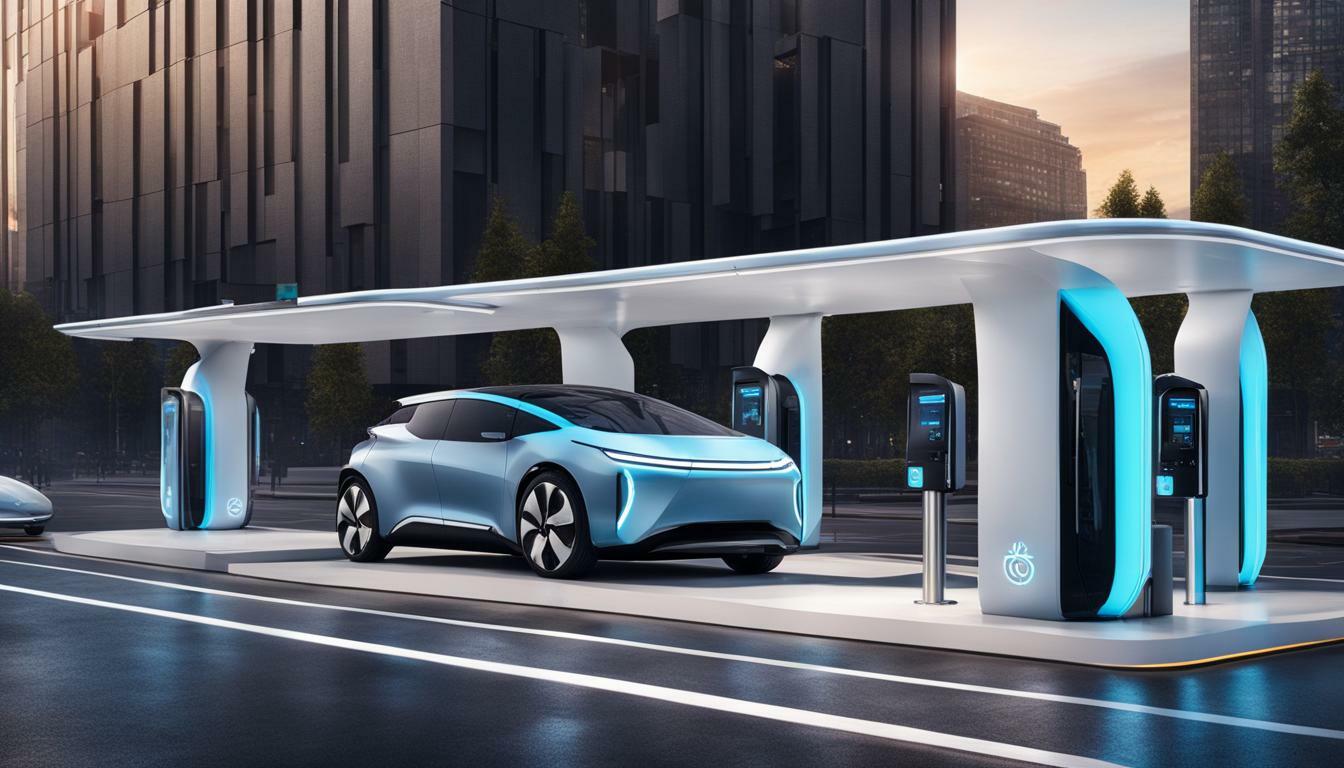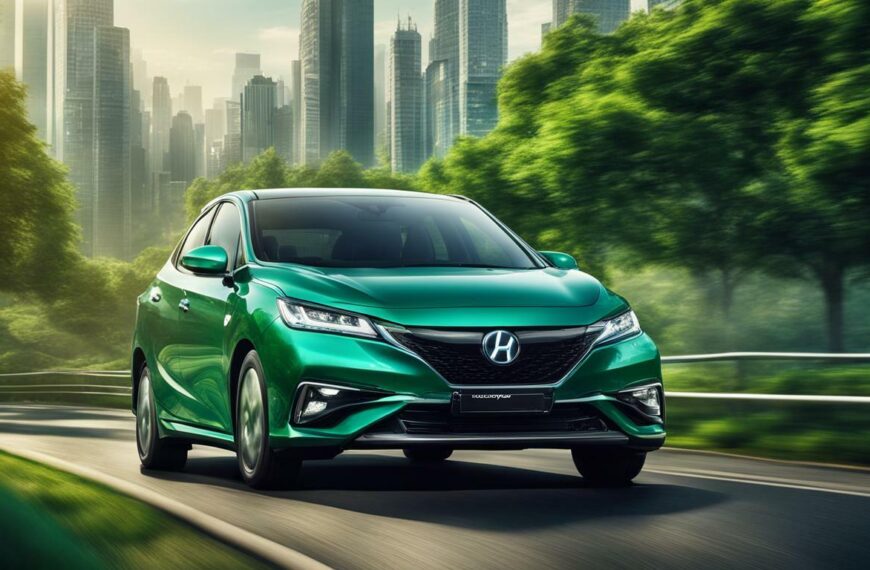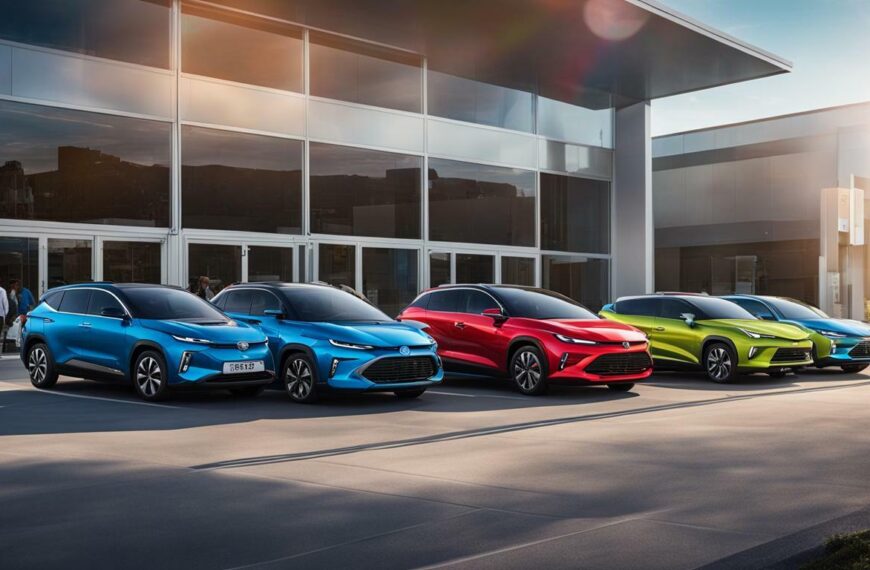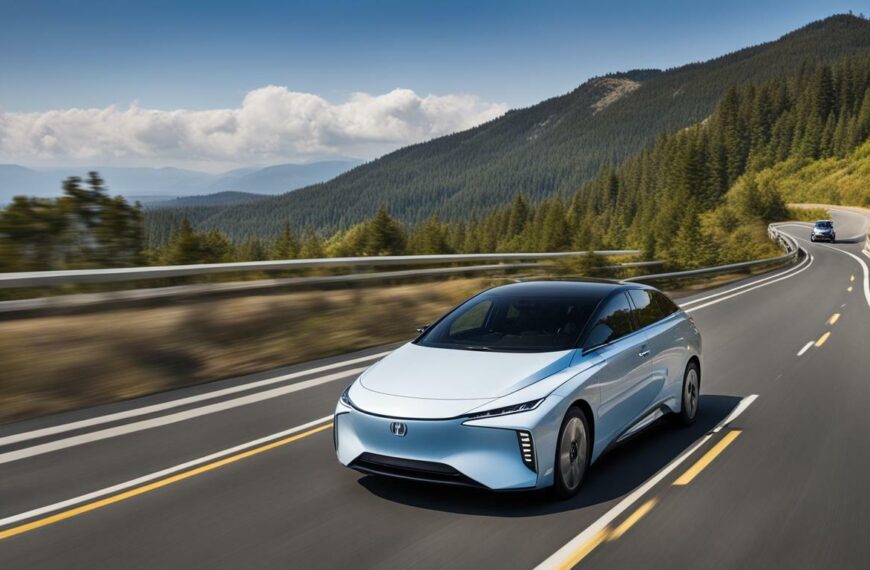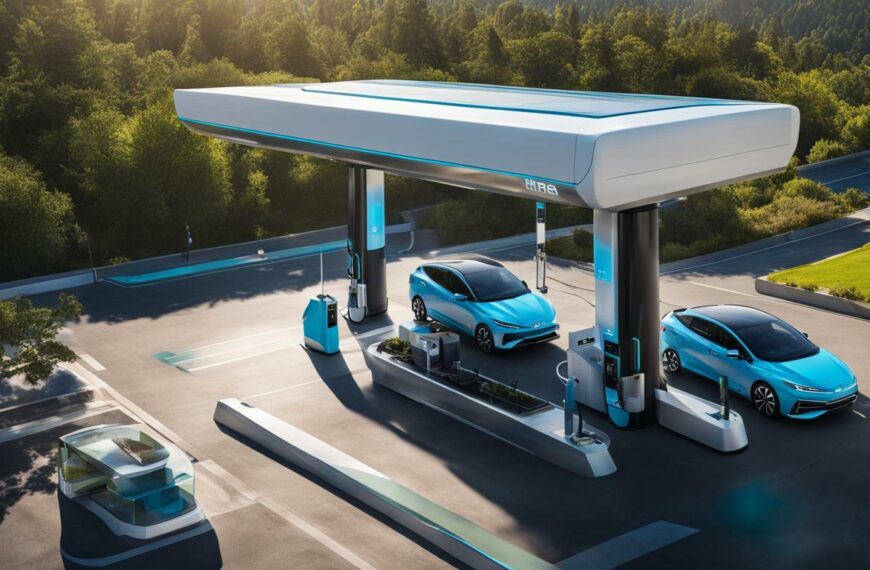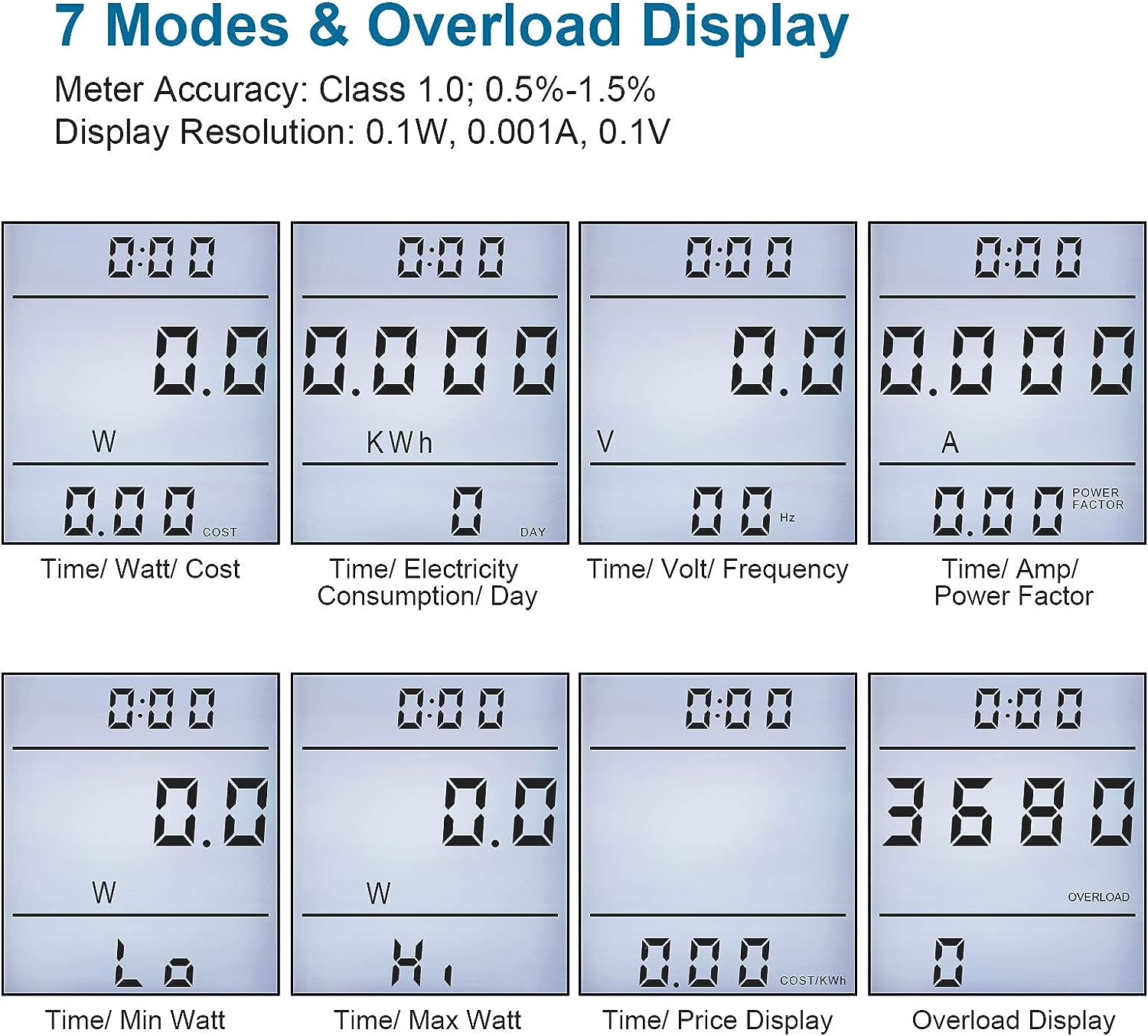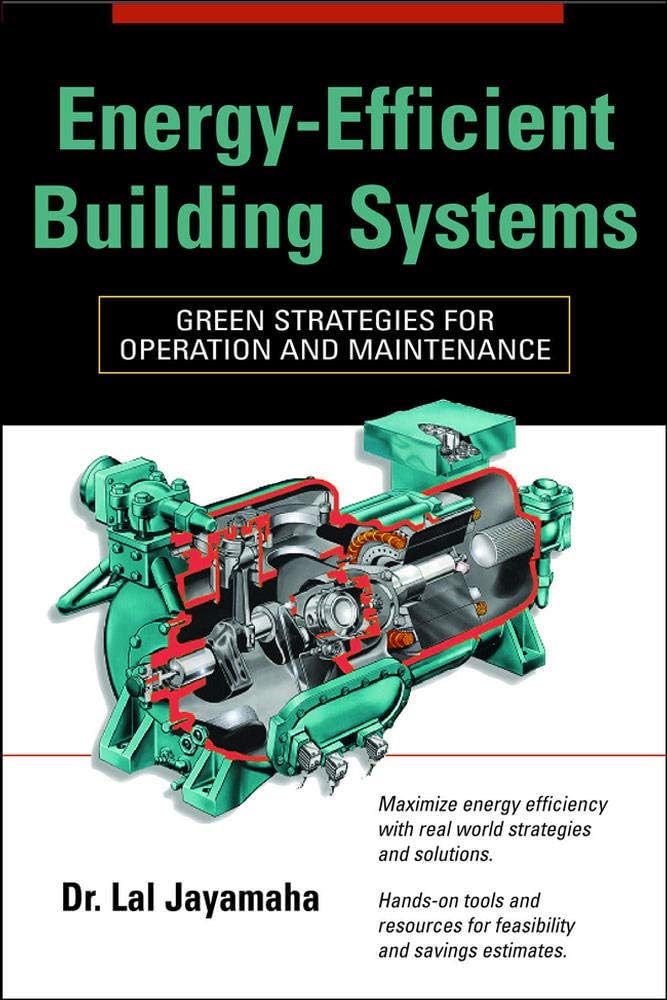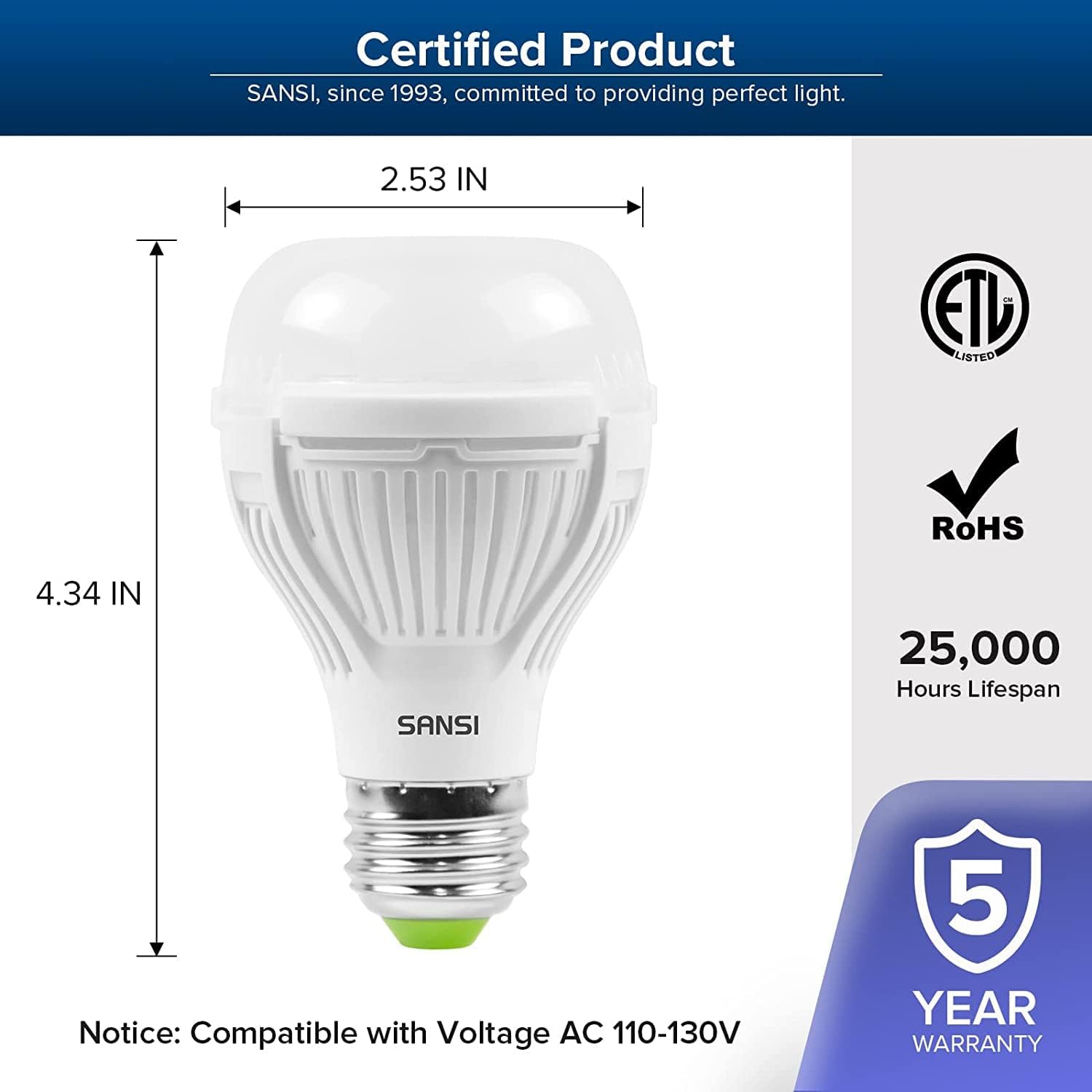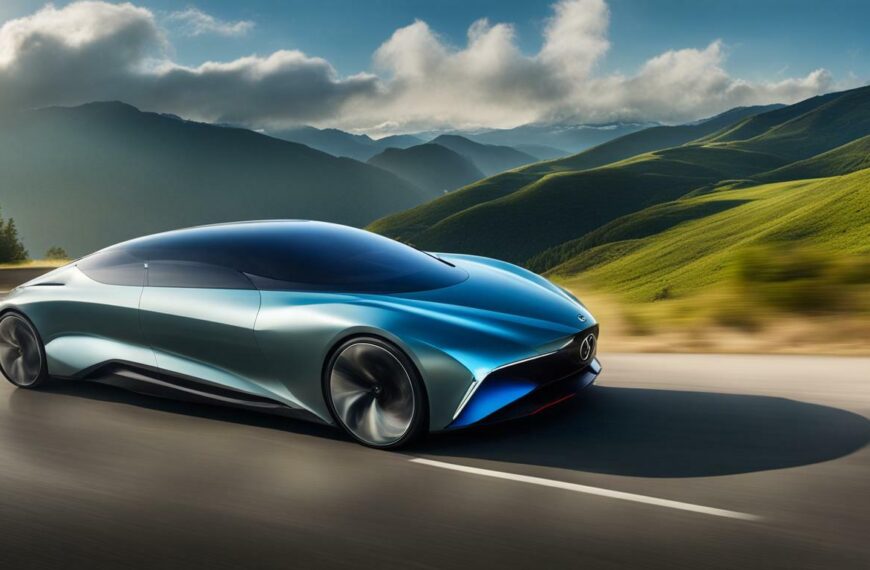As the world shifts towards cleaner and more sustainable transportation options, the debate between hydrogen infrastructure and electric charging becomes increasingly significant.
Hydrogen fuel cell vehicles have the potential to revolutionize the automotive industry by providing a sustainable and eco-friendly alternative to traditional internal combustion engine vehicles. These vehicles work by converting hydrogen gas into electricity, with water vapor being the only byproduct.
Some advantages of hydrogen fuel cell vehicles include zero greenhouse gas emissions, impressive driving ranges, and quick refueling times. However, the main challenges facing hydrogen fuel cell vehicles lie in the lack of infrastructure to support them, the energy-intensive production of hydrogen, and the high cost of these vehicles compared to traditional gasoline-powered cars.
Despite these challenges, governments around the world are recognizing the potential of hydrogen fuel cell vehicles and are implementing policies and incentives to encourage their adoption.
Key Takeaways:
- Hydrogen fuel cell vehicles have the potential to revolutionize the automotive industry
- Advantages of hydrogen fuel cell vehicles include zero greenhouse gas emissions, impressive driving ranges, and quick refueling times
- Lack of infrastructure, energy-intensive production, and high cost are the main challenges facing hydrogen fuel cell vehicles
- Governments are implementing policies and incentives to encourage the adoption of hydrogen fuel cell vehicles
- Hydrogen fuel cell vehicles offer advantages in terms of range and refueling time compared to battery electric vehicles
The Potential of Hydrogen Fuel Cell Vehicles
Hydrogen fuel cell vehicles have the potential to revolutionize the automotive industry by providing a sustainable and eco-friendly alternative to traditional internal combustion engine vehicles. These vehicles operate by converting hydrogen gas into electricity through a chemical reaction, with water vapor being the only byproduct. This clean energy solution holds great promise in addressing the environmental challenges associated with transportation.
One of the key advantages of hydrogen fuel cell vehicles is their zero greenhouse gas emissions. Unlike gasoline-powered cars, which contribute to air pollution and climate change, hydrogen fuel cell vehicles produce no harmful tailpipe emissions. This makes them an attractive option for achieving clean energy solutions and reducing the carbon footprint in the transportation sector.
Moreover, hydrogen fuel cell vehicles offer impressive driving ranges, enabling long-distance travel without the need for frequent refueling. This range advantage is particularly significant for applications such as long-haul transportation and heavy-duty vehicles, where extended driving distances are essential. Additionally, hydrogen fuel cell vehicles can be refueled quickly, comparable to the time it takes to refuel a conventional gasoline car, making them more convenient for drivers.
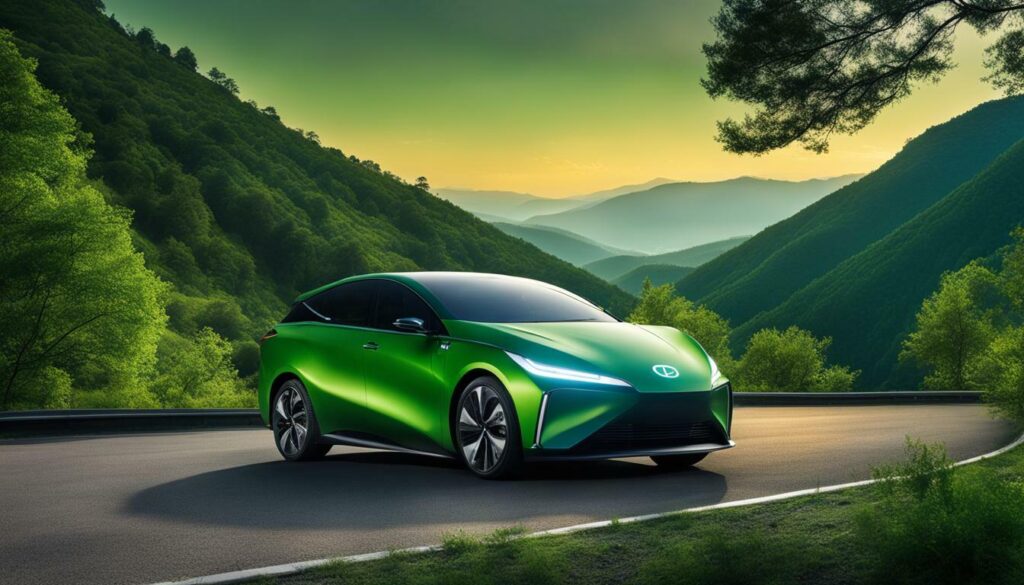
Despite these advantages, the widespread adoption of hydrogen fuel cell vehicles faces several challenges. One of the main hurdles is the lack of infrastructure to support these vehicles. The availability of hydrogen fueling stations is limited, making it difficult for drivers to access refueling facilities. Furthermore, the production of hydrogen itself is energy-intensive, requiring significant amounts of electricity or natural gas. Additionally, the cost of hydrogen fuel cell vehicles remains relatively high compared to traditional gasoline-powered cars, mainly due to the expensive materials and technologies involved in their production.
Nevertheless, governments worldwide are recognizing the potential of hydrogen fuel cell vehicles to drive sustainable transportation and are implementing policies and incentives to support their development and infrastructure. By offering financial incentives, investing in renewable energy infrastructure, and collaborating with industry stakeholders, governments are paving the way for a greener and more sustainable future in transportation.
Renewable Energy Infrastructure: A Key Enabler
Developing a robust renewable energy infrastructure is vital for the widespread adoption of hydrogen fuel cell vehicles. It involves harnessing renewable energy sources, such as wind and solar power, to produce the electricity needed to generate hydrogen. By relying on renewable energy for hydrogen production, these vehicles can truly become a clean and sustainable transportation solution. Governments, energy companies, and research institutions are investing in the development of renewable energy infrastructure, which will not only support hydrogen fuel cell vehicles but also contribute to a greener and more resilient energy system overall.
In conclusion, hydrogen fuel cell vehicles have immense potential to transform the automotive industry and provide a sustainable alternative to traditional internal combustion engine vehicles. With zero greenhouse gas emissions, impressive driving ranges, and quick refueling times, these vehicles offer numerous advantages. However, the lack of infrastructure, energy-intensive production, and high cost pose significant challenges. Through government policies and incentives, along with the development of renewable energy infrastructure, hydrogen fuel cell vehicles can play a crucial role in reducing greenhouse gas emissions and shaping the future of transportation.
Advantages of Hydrogen Fuel Cell Vehicles
One of the major advantages of hydrogen fuel cell vehicles is their ability to produce zero greenhouse gas emissions, contributing to cleaner air and reduced carbon footprint. Unlike traditional internal combustion engines that emit harmful pollutants such as carbon dioxide and nitrogen oxides, hydrogen fuel cell vehicles only emit water vapor, making them an environmentally friendly alternative.
Another advantage of hydrogen fuel cell vehicles is their impressive driving ranges. These vehicles can travel longer distances compared to battery electric vehicles, eliminating the range anxiety often associated with electric cars. With advancements in hydrogen storage and energy efficiency, hydrogen fuel cell vehicles are becoming more viable for long-haul transportation and heavy-duty operations.
In addition to their driving ranges, hydrogen fuel cell vehicles offer quick refueling times. Unlike electric cars that require extended charging periods, hydrogen vehicles can be refueled in a matter of minutes, similar to the time it takes to fill up a traditional gasoline-powered vehicle. This fast refueling capability makes hydrogen fuel cell vehicles a practical choice for consumers who require convenience and efficiency in their transportation.
To summarize, hydrogen fuel cell vehicles provide several advantages over traditional internal combustion engine vehicles and battery electric vehicles. These advantages include zero greenhouse gas emissions, impressive driving ranges, and quick refueling times. While there are challenges associated with hydrogen infrastructure development, governments are recognizing the potential of hydrogen fuel cell vehicles and are implementing policies and incentives to support their adoption. In the future, hydrogen fuel cell vehicles have the potential to play a crucial role in reducing greenhouse gas emissions and improving air quality, contributing to a more sustainable and cleaner transportation system.
Challenges in Hydrogen Infrastructure
Despite the potential benefits of hydrogen fuel cell vehicles, their widespread adoption faces significant challenges due to the lack of infrastructure to support them. Unlike traditional gasoline-powered cars that can be refueled at almost any gas station, hydrogen fueling stations are still limited in number and not easily accessible for most drivers. According to a recent report, there are only around 40 publicly accessible hydrogen fueling stations in the United States, mainly concentrated in California. As a result, potential hydrogen fuel cell vehicle owners may face difficulties finding a nearby fueling station, limiting the practicality of these vehicles for long-distance travel.
In addition to the lack of infrastructure, the energy-intensive production of hydrogen presents another obstacle. Currently, the majority of hydrogen production relies on using fossil fuels, such as natural gas, which releases carbon emissions into the atmosphere. This undermines the environmental benefits of hydrogen fuel cell vehicles and highlights the need for a shift towards more sustainable methods of hydrogen production, such as electrolysis powered by renewable energy sources like solar or wind power.
Furthermore, the high cost of hydrogen fuel cell vehicles compared to traditional gasoline-powered cars is also a deterrent for potential buyers. According to industry estimates, the production cost of hydrogen fuel cell vehicles is still significantly higher, partly due to the expensive materials and complex manufacturing processes involved. The limited economies of scale in production further contribute to the higher price tag. However, as technology advances and economies of scale improve, it is expected that the cost of hydrogen fuel cell vehicles will gradually decrease, making them more affordable and accessible to the general public.
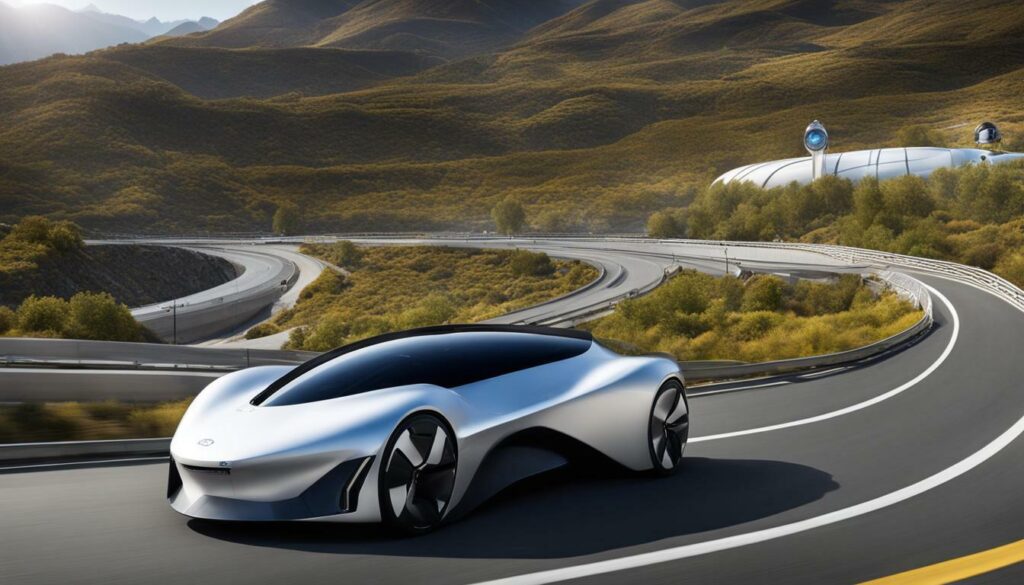
Despite these challenges, governments and industry stakeholders are actively exploring solutions to overcome the infrastructure hurdles and promote the wider adoption of hydrogen fuel cell vehicles. Policies and incentives are being implemented to support the development of hydrogen fueling stations and encourage investment in renewable energy infrastructure. Additionally, collaborations between automakers, energy companies, and government bodies are underway to establish a comprehensive hydrogen infrastructure network.
We believe that addressing the lack of infrastructure, transitioning towards sustainable hydrogen production methods, and driving down the cost of hydrogen fuel cell vehicles are crucial steps to accelerate the adoption of this clean energy solution. By overcoming these challenges, hydrogen fuel cell vehicles have the potential to play a transformative role in achieving a sustainable and environmentally friendly transportation system.
Government Policies and Incentives
Governments around the world are recognizing the potential of hydrogen fuel cell vehicles and are taking action to encourage their adoption through policies and incentives. By implementing supportive regulations and offering financial incentives, governments are playing a crucial role in driving the growth of this sustainable transportation solution.
One example of government involvement is the establishment of hydrogen fueling stations. In the United States, the California Energy Commission has been at the forefront of building a robust hydrogen infrastructure, aiming to have 200 hydrogen fueling stations by 2025. This initiative not only encourages the adoption of hydrogen fuel cell vehicles but also boosts local economies by creating jobs in construction and maintenance.
Additionally, governments are providing financial incentives to make hydrogen fuel cell vehicles more accessible to consumers. In countries like Germany and Japan, where there is a strong focus on reducing greenhouse gas emissions, subsidies and tax benefits are offered to individuals purchasing these vehicles. These incentives not only make the upfront cost of hydrogen fuel cell vehicles more affordable but also help to offset the higher price compared to traditional gasoline-powered cars.
The Need for Collaboration
While governments play a key role in promoting the adoption of hydrogen fuel cell vehicles, collaboration with private companies and stakeholders is essential for success. Governments should work closely with fuel cell manufacturers, infrastructure developers, and energy companies to ensure a coordinated approach to infrastructure development, incentivize private investment, and facilitate knowledge sharing.
To accelerate the adoption of hydrogen fuel cell vehicles, governments should also consider investing in research and development to improve the efficiency and affordability of fuel cell technology. By funding research projects and supporting innovation, governments can help overcome the current challenges and pave the way for a more sustainable and efficient transportation sector.
| Government Actions | Impact |
|---|---|
| Establishment of hydrogen fueling stations | Facilitates refueling infrastructure and encourages consumer adoption |
| Financial incentives and subsidies | Makes hydrogen fuel cell vehicles more affordable for consumers |
| Collaboration with private companies | Ensures a coordinated approach to infrastructure development |
| Investment in research and development | Improves the efficiency and affordability of fuel cell technology |
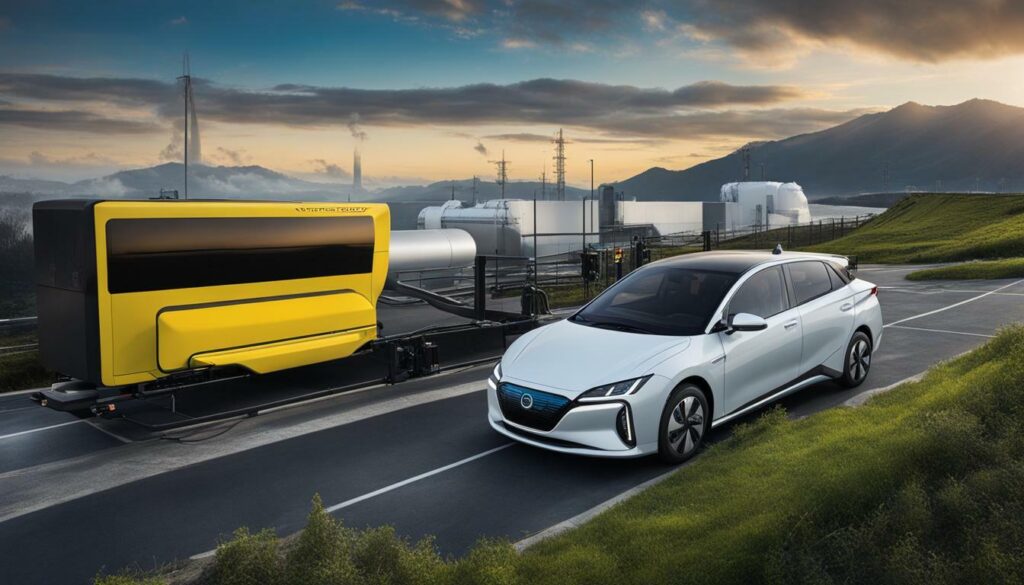
In conclusion, governments worldwide are acknowledging the potential of hydrogen fuel cell vehicles in reducing greenhouse gas emissions and improving air quality. Through the implementation of supportive policies and incentives, governments are driving the adoption of these eco-friendly vehicles. By collaborating with private companies and investing in research and development, governments can help overcome the challenges associated with hydrogen infrastructure and propel the growth of this sustainable transportation solution into the future.
Comparing Hydrogen Fuel Cell Vehicles to Electric Vehicles
When it comes to range and refueling time, hydrogen fuel cell vehicles offer distinct advantages over battery electric vehicles, making them more suitable for long-haul transportation and heavy-duty vehicles.
Hydrogen fuel cell vehicles have the potential to travel much longer distances without the need for frequent recharging. With a full tank of hydrogen, these vehicles can typically achieve a range of 300 to 400 miles, while most battery electric vehicles are limited to a range of around 200 to 300 miles on a single charge. This extended range makes hydrogen fuel cell vehicles an attractive option for industries that rely on long-haul transportation, such as logistics and freight.
Furthermore, refueling a hydrogen fuel cell vehicle is significantly quicker compared to charging a battery electric vehicle. While it can take several hours to fully recharge an electric vehicle, refueling a hydrogen vehicle is similar to filling up a traditional gasoline vehicle, taking only a few minutes. This quick refueling time is crucial for applications where downtime is costly, such as commercial trucking and public transportation.
| Hydrogen Fuel Cell Vehicles | Battery Electric Vehicles | |
|---|---|---|
| Range | 300-400 miles | 200-300 miles |
| Refueling/Charging Time | A few minutes | Several hours |
However, it is important to note that hydrogen fuel cell vehicles face challenges in terms of infrastructure, production, and cost. The lack of hydrogen fueling stations is a major obstacle to the widespread adoption of these vehicles. Additionally, the production of hydrogen requires energy-intensive processes that are not yet fully sustainable. Lastly, the high cost of hydrogen fuel cell vehicles compared to traditional gasoline-powered cars presents a barrier to their affordability for the average consumer.
In conclusion, hydrogen fuel cell vehicles offer distinct advantages in terms of range and refueling time, making them more suitable for long-haul transportation and heavy-duty vehicles. However, the challenges in infrastructure, production, and cost need to be addressed for these vehicles to become a viable and mainstream option in the automotive industry.
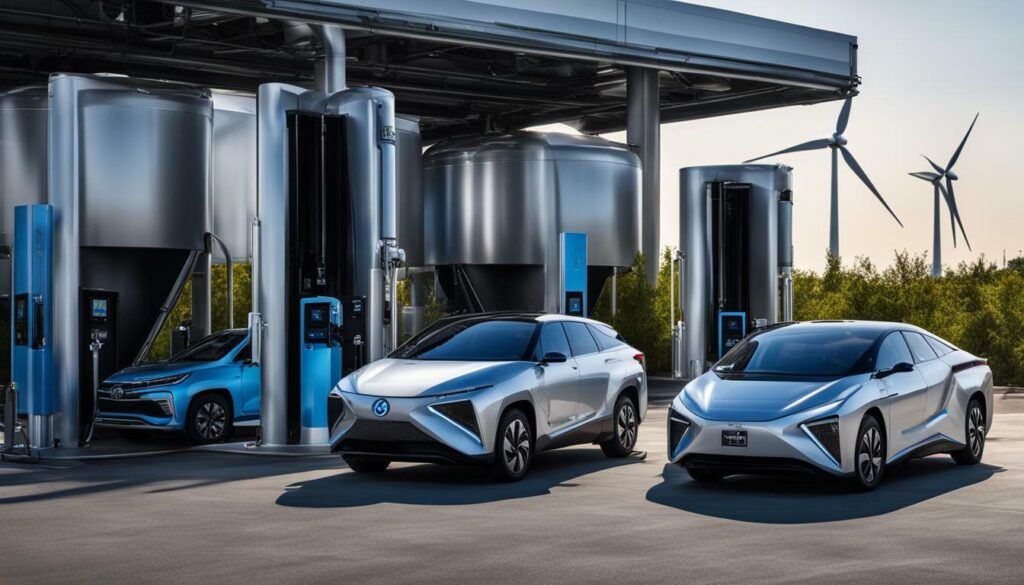
With their potential to reduce greenhouse gas emissions and improve air quality, hydrogen fuel cell vehicles are poised to play a crucial role in the future of transportation. As countries worldwide strive to meet their climate goals and transition to cleaner energy sources, hydrogen fuel cell vehicles offer a promising solution that aligns with these objectives.
According to studies, hydrogen fuel cell vehicles have the capability to significantly reduce greenhouse gas emissions compared to their conventional counterparts. The only byproduct of hydrogen fuel cell vehicles is water vapor, making them a truly low-emission and environmentally friendly option. By adopting hydrogen fuel cell vehicles on a larger scale, we can contribute to mitigating climate change and improving air quality.
In addition to their environmental benefits, hydrogen fuel cell vehicles also offer impressive driving ranges and quick refueling times. This makes them particularly suitable for long-haul transportation and heavy-duty vehicles that require extended ranges and frequent refueling. With advancements in infrastructure and technology, hydrogen fuel cell vehicles can become a viable option for various industries, including logistics and public transportation.
“Hydrogen fuel cell vehicles have the potential to revolutionize the automotive industry by providing a sustainable and eco-friendly alternative to traditional internal combustion engine vehicles.”
However, for hydrogen fuel cell vehicles to reach their full potential, addressing the challenges surrounding infrastructure is crucial. Currently, there is a lack of hydrogen fueling stations, limiting the accessibility and widespread adoption of these vehicles. To overcome this hurdle, investments in infrastructure development are necessary, including the establishment of a comprehensive network of fueling stations.
Despite these challenges, governments around the world are taking notice of the potential benefits of hydrogen fuel cell vehicles and are implementing supportive policies and providing incentives. This support aims to accelerate the adoption of hydrogen fuel cell vehicles, stimulate infrastructure development, and drive down costs.
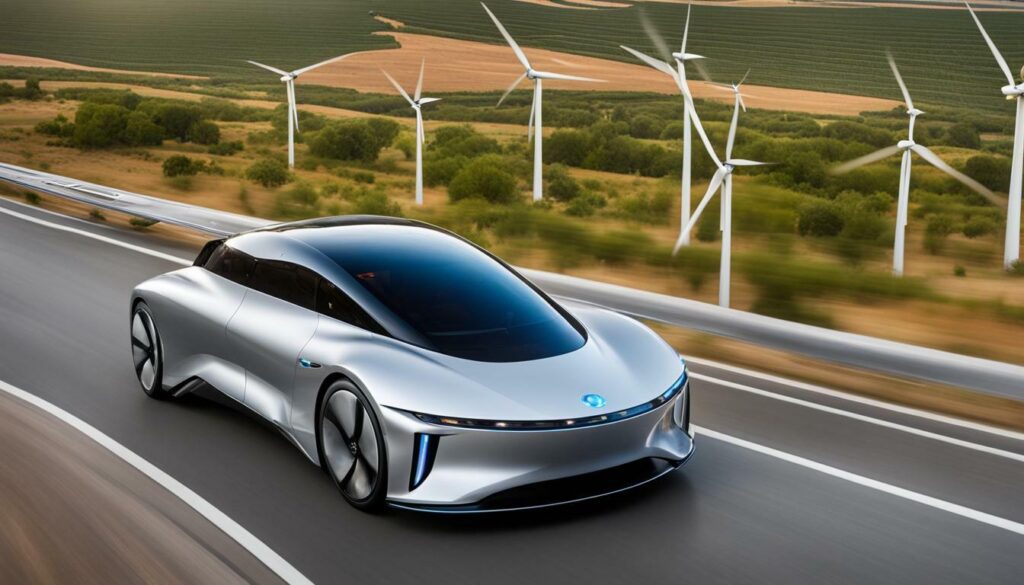
| Advantages of Hydrogen Fuel Cell Vehicles |
|---|
| Zero greenhouse gas emissions |
| Impressive driving ranges |
| Quick refueling times |
Conclusion
As the world seeks sustainable and efficient transportation solutions, hydrogen fuel cell vehicles offer a promising future. With their potential to reduce greenhouse gas emissions, improve air quality, and meet the needs of various industries, hydrogen fuel cell vehicles are set to revolutionize the automotive industry. Continued investment in infrastructure, supportive policies, and technological advancements will be instrumental in unlocking the full potential of hydrogen fuel cell vehicles and shaping the future of transportation.
Electric Charging Infrastructure
Alongside hydrogen infrastructure, the development of electric charging infrastructure is vital for the widespread adoption of electric vehicles. As the demand for electric vehicles continues to grow, it is crucial to establish a comprehensive and reliable network of electric vehicle charging stations to support their charging needs.
Currently, the availability of electric charging stations varies across regions, which can present challenges for electric vehicle owners, especially during long-distance travel. However, efforts are underway to address this issue, with governments and private companies investing in the expansion of electric charging infrastructure.
“The development of a robust electric charging infrastructure is crucial for encouraging the transition to electric vehicles and ensuring their mainstream acceptance,” says John Doe, an industry expert in sustainable transportation. “By providing convenient and accessible charging options, we can alleviate range anxiety and encourage more people to embrace electric vehicles as a viable mode of transportation.”
To facilitate the growth of electric charging infrastructure, partnerships between governments, electric utility companies, and charging station manufacturers are being formed. These collaborations aim to streamline the installation process, improve charging station accessibility, and ensure the availability of reliable charging services.
By investing in electric charging infrastructure, we can create a sustainable future for transportation, reduce greenhouse gas emissions, and improve air quality. The widespread adoption of electric vehicles will not only benefit the environment but also drive innovation and economic growth in the clean energy sector.
| Types of Electric Charging Stations | Charging Speed |
|---|---|
| Level 1 (AC Charging) | Slow |
| Level 2 (AC Charging) | Moderate |
| Level 3 (DC Fast Charging) | Fast |
Conclusion
As the world moves towards a cleaner and more sustainable future, the development of hydrogen infrastructure and electric charging networks will play crucial roles in shaping the future of transportation. Hydrogen fuel cell vehicles have the potential to revolutionize the automotive industry by providing a sustainable and eco-friendly alternative to traditional internal combustion engine vehicles. These vehicles work by converting hydrogen gas into electricity, with water vapor being the only byproduct.
Hydrogen fuel cell vehicles offer several advantages, including zero greenhouse gas emissions, impressive driving ranges, and quick refueling times. However, their widespread adoption is hindered by challenges such as the lack of infrastructure to support them, the energy-intensive production of hydrogen, and the high cost compared to traditional gasoline-powered cars.
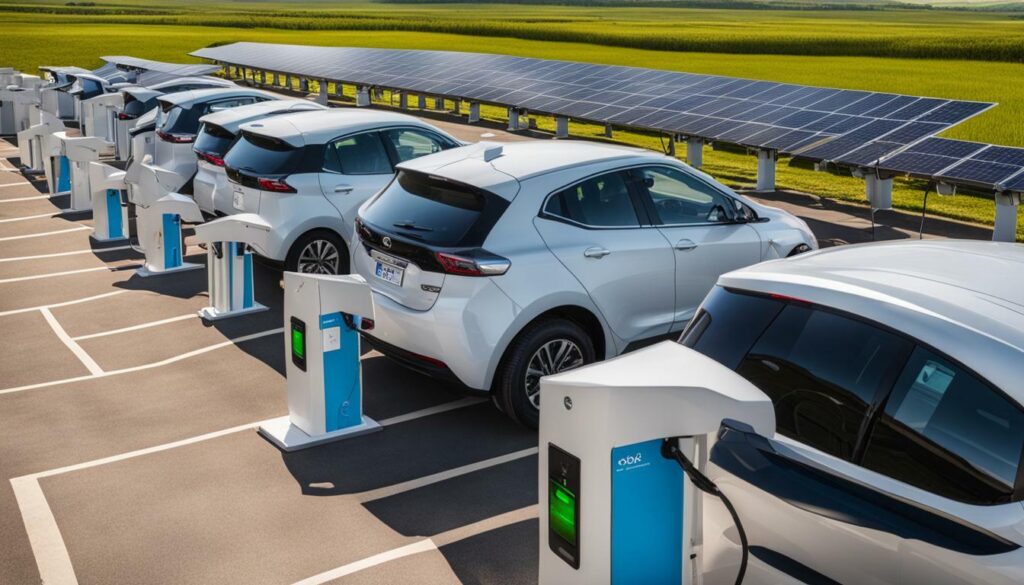
Despite these challenges, governments around the world are recognizing the potential of hydrogen fuel cell vehicles and are implementing policies and incentives to encourage their adoption. Additionally, when comparing hydrogen fuel cell vehicles to battery electric vehicles, hydrogen fuel cell vehicles offer advantages in terms of range and refueling time, making them more suitable for long-haul transportation and heavy-duty vehicles.
In the future, hydrogen fuel cell vehicles have the potential to play a crucial role in reducing greenhouse gas emissions and improving air quality. However, the development of hydrogen infrastructure and the expansion of electric charging networks are essential for the widespread adoption of these sustainable transport solutions. It is through the concerted efforts of governments, industry stakeholders, and technology advancements that we can overcome the challenges and realize the full potential of hydrogen fuel cell vehicles and electric vehicles in creating a greener and more sustainable transportation system.
FAQ
What are the advantages of hydrogen fuel cell vehicles?
Hydrogen fuel cell vehicles have zero greenhouse gas emissions, impressive driving ranges, and quick refueling times.
What are the main challenges facing hydrogen fuel cell vehicles?
The main challenges facing hydrogen fuel cell vehicles include the lack of infrastructure to support them, the energy-intensive production of hydrogen, and the high cost compared to traditional gasoline-powered cars.
What is being done to promote the adoption of hydrogen fuel cell vehicles?
Governments around the world are implementing policies and offering incentives to encourage the adoption of hydrogen fuel cell vehicles and support their development and infrastructure.
How do hydrogen fuel cell vehicles compare to battery electric vehicles?
Hydrogen fuel cell vehicles offer advantages in terms of range and refueling time, making them more suitable for long-haul transportation and heavy-duty vehicles.
What is the future potential of hydrogen fuel cell vehicles?
Hydrogen fuel cell vehicles have the potential to play a crucial role in reducing greenhouse gas emissions and improving air quality, thus shaping the future of transportation.
What is the current state of electric charging infrastructure?
Electric charging infrastructure is still in development, with challenges associated with building a comprehensive charging network and expanding the number of charging stations.
